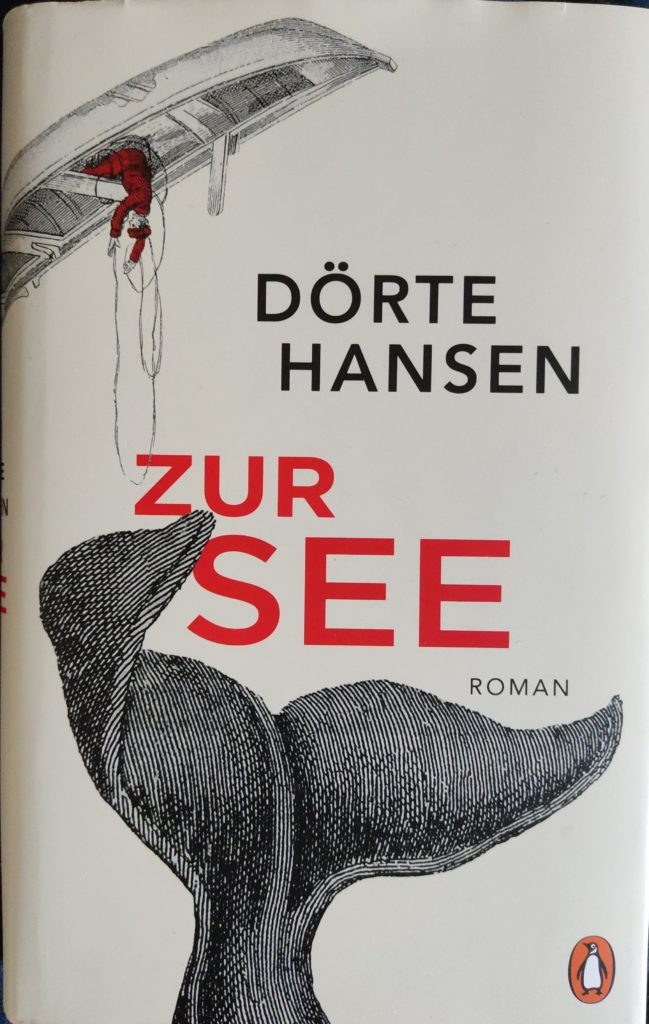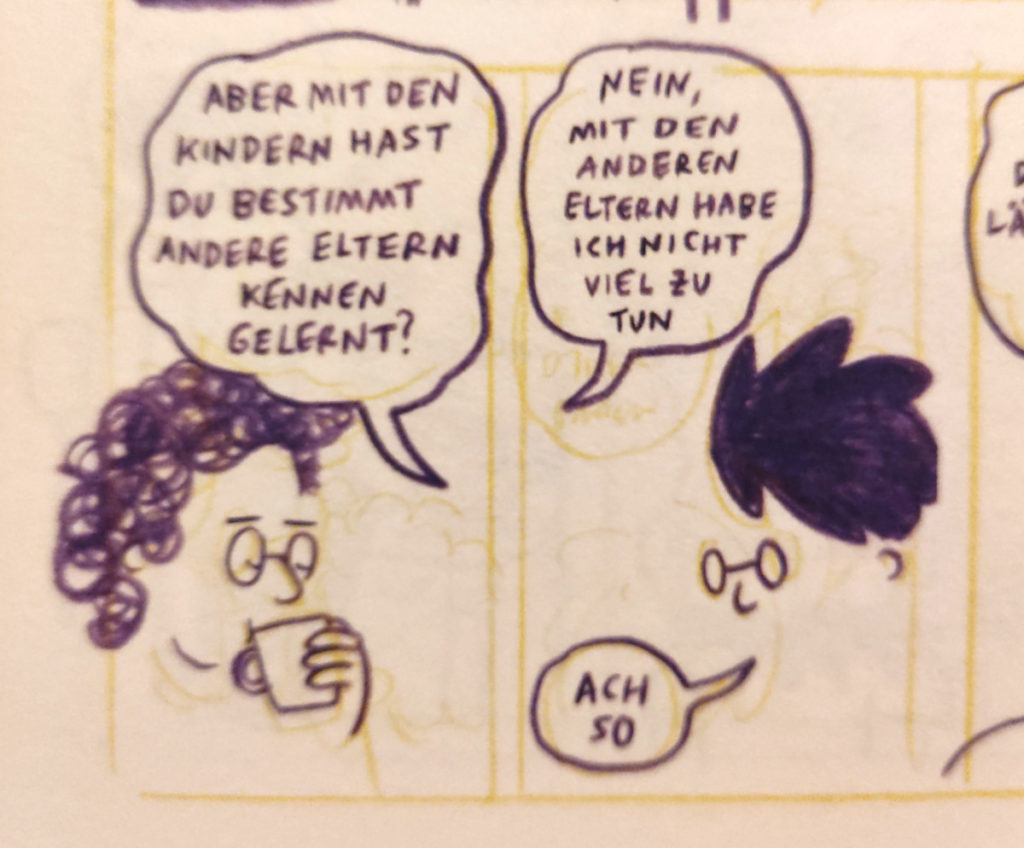Ten books finished this month, five by women/POC, and eight in German thanks to #GermanLitMonth!
- Momo — Michael Ende
- Das Archiv der Gefühle — Peter Stamm
- Die Haarteppichknüpfer — Andreas Eschbach
- Der Trip — Nozomi Horibe tr. Gregor Suchan
- Dimple Hill — Dorothy M. Richardson
- Die Liebe zur Zeit des Mahlstädter Kindes — Clemens J. Setz
- Nebenan — Kristine Bilkau
- Prosastücke — Robert Walser
- Zur See — Dörte Hansen
- The Appointment — Katharina Volckmer
I’ve organised the German books into the four suggested GermanLitMonth categories:
First time for everything
My first book of the month (but my second by the author) was Michael Ende’s Momo. The earlier sections are reminiscent of The Little Prince, with parable-like episodes (and both books straddle the children’s book/literature divide). Later it becomes a more conventional, but enjoyable, adventure story.
Nebenan was the first book I’ve read by Kristine Bilkau. It’s short and atmospheric, with a very symbolic canal running through the village where most of the action takes place (the semi-industrial setting reminded me of Deniz Ohde’s Streulicht). Bilkau assembles themes and draws (sometimes forced) connections between neighbours in a story where a lot is left unresolved. I had to adjust my expectations, but there are lots of clever details (a woman dyeing her hair before an IVF appointment, the children’s games played by exchanging notes).
The Appointment is written in English, so a slight cheat. Energetically shocking, for most of the book it’s great fun, but I thought trying a bit too hard. The final sections add an impressive emotional weight to the extravagance.
Second helpings
It took me a while to get into Das Archiv der Gefühle, my second book by Peter Stamm, as it lacks the humour of the first (Wenn es dunkel wird), but it’s a great exploration of truth and fantasy through a very unreliable narrator’s monologue. Covid lurks in the background, but the protagonist (an archivist who is mysteriously vague about his own life) constructs his own, largely independent reality.
Another second book for an author (and firm favourite) was Die Liebe zur Zeit des Mahlstädter Kindes. I read Setz’s later collection of stories — Der Trost runder Dinge — first, and enjoyed it more (more subtle, and not so dependent on shock for its effectiveness), but the earlier volume iss still full of wonderful images (the apartments on a big wheel, the author in an archive…).
More short stories (or at least short texts) in my second book by Robert Walser, but I may leave at that for now. He carries the archness which I think is often present in Austrian writing to an extreme which I find hard to take; here’s a typical sentence from several pages about eating a sausage:
Ich ass, was ich nimmermehr so schnell hätte essen, was ich mir lieber nimmermehr so eilig hätte schmecken lassen sollen.
I’m glad I kept reading for the last two parable-like stories, though: Schwendimann and Ich habe nichts, and there are some other good phrases along the way:
Göttlich schön und gross ist es, junge Wangen und junge Lebensanschauungen zu haben.
Firm favourites
Andreas Eschbach’s Die Haarteppichknüpfer is an odd mixture of pseudo-Mediaeval and sci-fi world-building, reminiscent of Iain M. Banks. The earlier sections have an intriguing blend of realism, horror and comedy; later the book opens out into a wider, but less satisfying narrative explaining the mysterious carpets.
Dörte Hansen is one of my favourite authors in any language, and Zur See is exactly what she does so well: eccentric, but relatable characters dealing with a changing social and literal landscape. This time the sea and the North Sea island give a particularly vivid sense of place. If I have any reservations, it’s that all her books do tend to follow a similar formula, but they’re so good that lardly seems to matter.
Something different
My graphic novel for the month was Nozomi Horibe’s comic of her cycle tour of Brandenburg. It’s touching and amusing (often at her own expense), and beautifully drawn in almost monochrome. Some of the panels are inventively playful (to this non-expert). Disappointingly, she passed through my area, but didn’t seem to find anything worth of mention! (There’s a very unobtrusive translation credit for Gregor Suchan, and I think it was translated from English into German).
Pilgrimage
And the monthly instalment of Pilgrimage (by a Germanophile, at least!) — Dimple Hill was great fun. Miriam wanders around in what appears to be Adam Bede transferred to the West Country, develops a crush on a not very interesting farmer, and then sets off on her independent way again. Meanwhile there are plenty of gold nuggets:
staying deedily on with the Pernes
immediately below her, at the wash-stand within whose rose-pink cake of fresh soap were safely stored the days to come, one escaped.
manlike, he had been unaware of being the sole speaker
Mrs Roscorla gave her a small nod, a gay little nod that seemed to tell her she was an old friend and exempt from formalities, and also clearly expressing pleasure in occasions for nodding
Miss Roscorla, having provided the late comer with tea, was cutting into the bun upon her own plate, absently, as if preoccupied, or simulating the mental preoccupation demanded by conversation, in the way of women who create the appearance of paying tribute to what is being said by deliberately assuming a manner suggesting distraction from whatever at the moment they happen to be doing.
But is making, pictures and bridges, and thumbscrews, humanity’s highest spiritual achievement?
a brisk middle-aged woman brimming with common sense and permanently impatient with the lack of it in almost every one she met.
a small, small-featured, small-minded and very refined elderly woman
Living always remote, drawn away into the depths of the spirit, they see, all the time, freshly. A perpetual Sunday.
‘She’s nothing but a slap-cabbage.’


